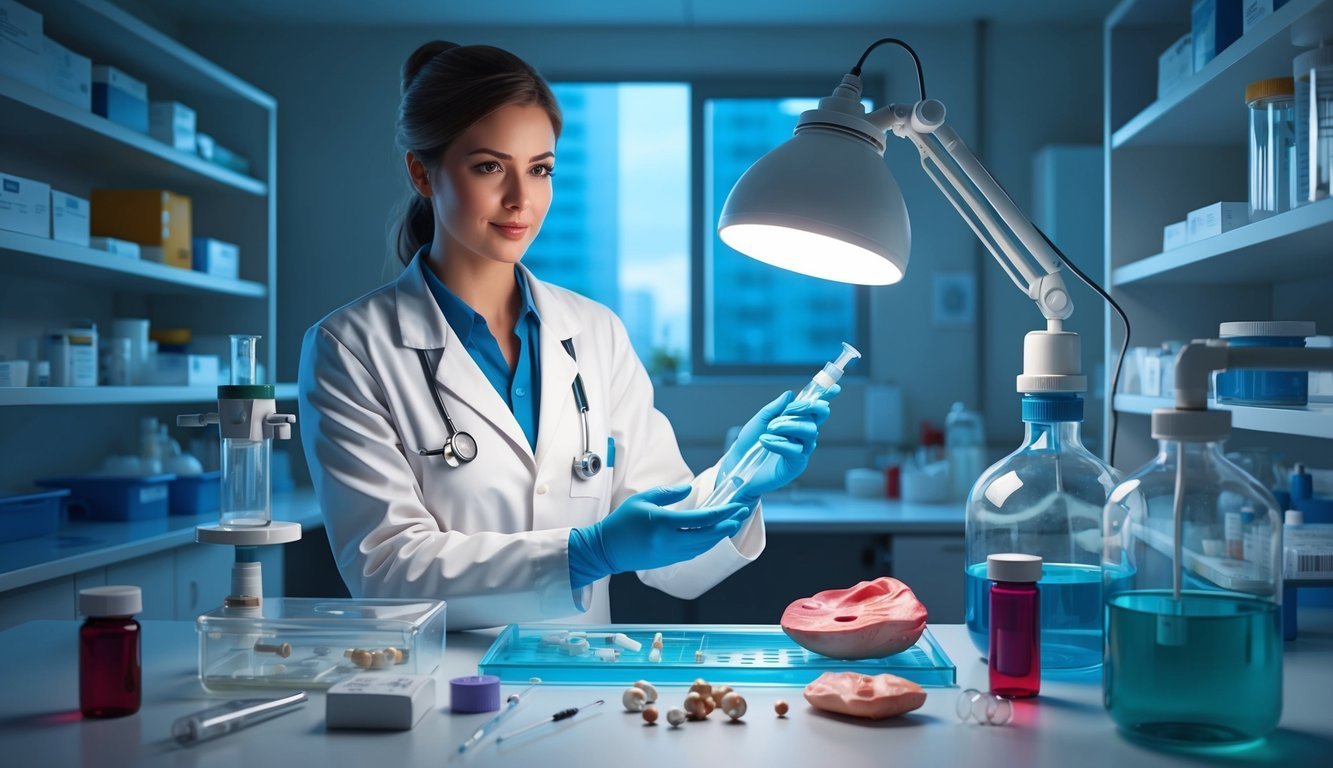If you’re eyeing a career in healthcare, medical lab technician courses might just open some exciting doors for you.
These programs teach you the ins and outs of running tests and analyzing samples in medical labs—skills that doctors and patients depend on every single day.
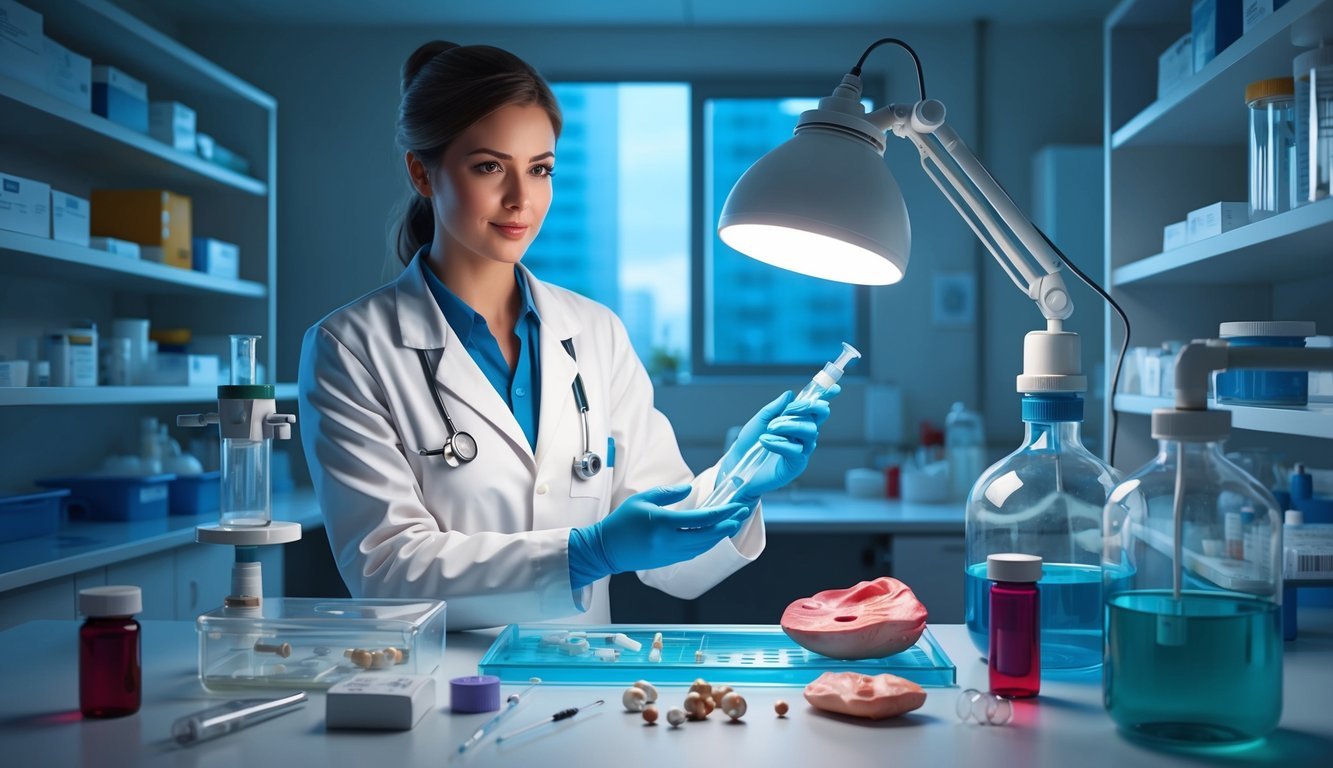
Online MLT programs offer you the flexibility to study on your own schedule. You can dive into the material at your own pace while still juggling work or other commitments.
When it’s time for the hands-on part, you’ll head into a lab for in-person clinical rotations.
This blend of online learning and practical experience gears you up for a rewarding career in medical labs.
1) Coursera’s Medical Laboratory Technician Professional Certificate
Thinking about starting a career as a medical lab technician? Look no further than Coursera’s Medical Laboratory Technician Professional Certificate.
This program equips you with the essential skills to step into this promising field.
You’ll learn all sorts of things, from lab safety to handling equipment, along with the basics of clinical chemistry.
And let’s not forget about hematology and microbiology—these are staples in a lab tech’s toolkit!
One of the best parts? You can learn at your own rhythm, fitting lessons into your busy life—it’s ideal if you’re working or have a packed schedule.
No experience? No problem! Whether you’re a recent high school grad or looking for a career shift, this course can help you get your foot in the door.
By the end, you’ll have a solid grounding in lab tech skills, plus a shiny certificate from Coursera to impress potential employers.
It’s a fantastic way to kick off your healthcare career without a lengthy educational commitment.
2) Mayo Clinic’s Medical Laboratory Science Program
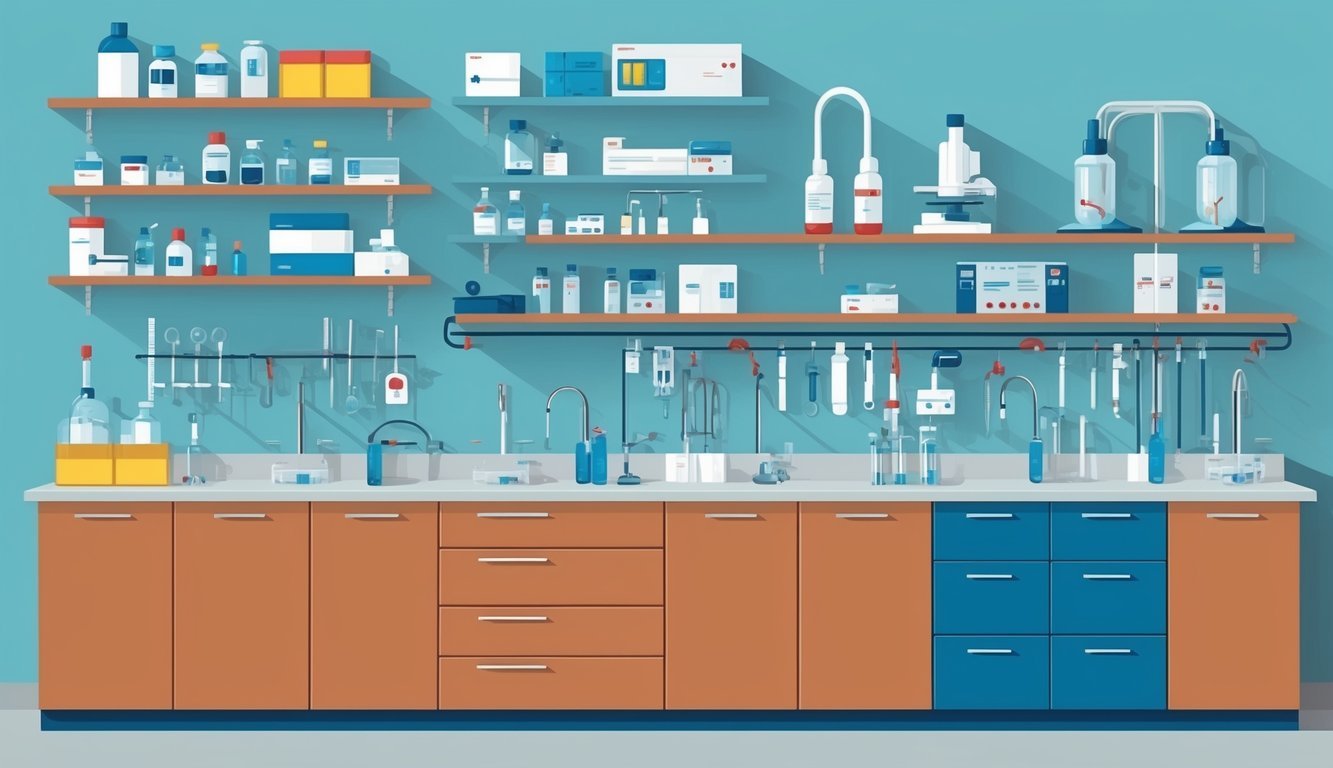
Ever thought about becoming a lab pro? Mayo Clinic’s Medical Laboratory Science Program is like a dream come true for future lab wizards!
You’ll roll up your sleeves and get hands-on experience with all kinds of biological samples.
Plus, you’ll learn to operate top-notch equipment that makes you feel like you’re right out of a science fiction movie.
This program isn’t just about lectures and textbooks; you’ll get loads of real-world experience through clinical rotations—think of it as a sneak peek into your future career!
Here’s the kicker: Mayo Clinic’s program is renowned for its excellent training, and students often score higher than average on exams—now that’s something to brag about.
Once you’re finished, you’ll be ready to shine in hospitals, clinics, or even research labs—there are plenty of job opportunities in this buzzing field!
3) University of Cincinnati’s Online MLT to MLS Program
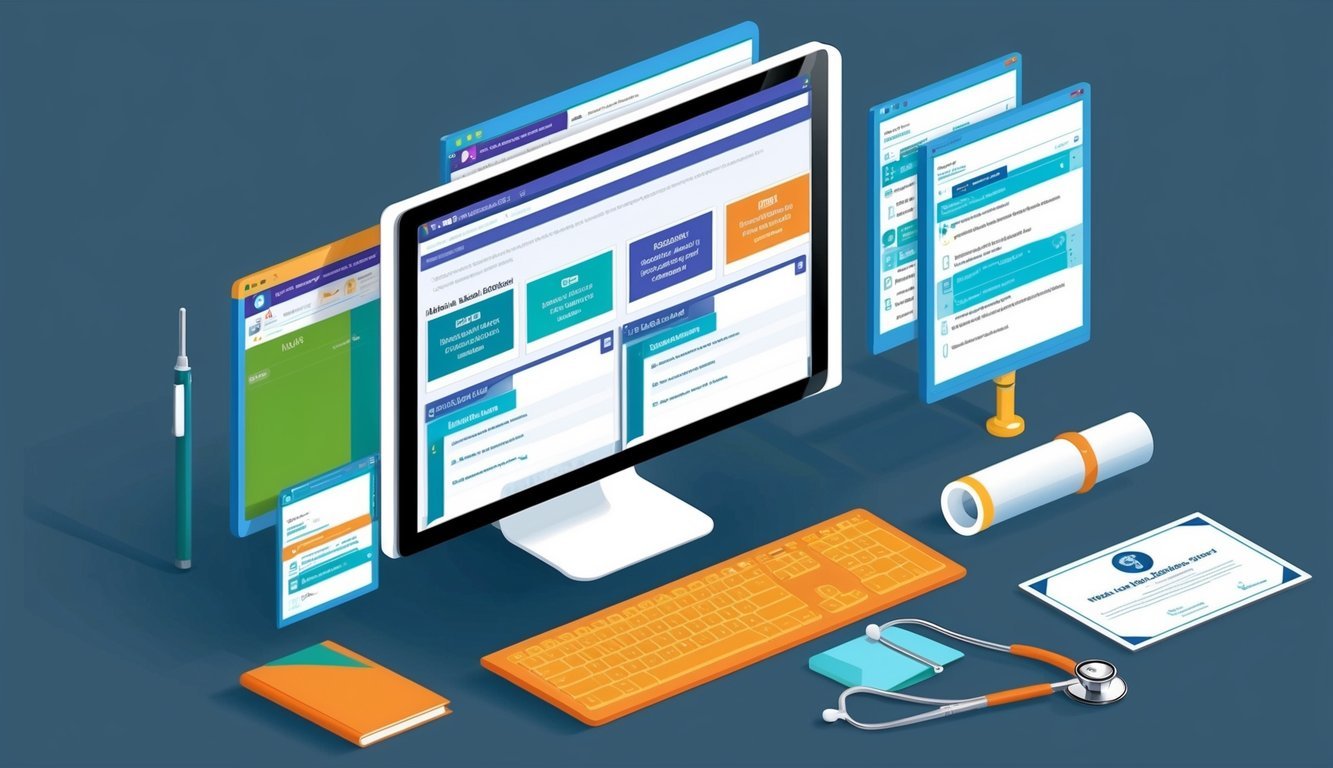
If you’re looking to level up from a Medical Laboratory Technician to a Medical Laboratory Scientist, the University of Cincinnati has you covered with their MLT to MLS program.
This program is perfect if you’ve snagged an associate’s degree in Clinical Laboratory Technology or Medical Laboratory Technology.
The flexible online format allows you to work while you learn.
And here’s the cherry on top—you’ll earn a Bachelor of Science in Medical Laboratory Science once you finish! This degree can unlock new career paths and boost your earning potential.
Worried about the quality? No sweat! UC’s program is accredited by NAACLS, ensuring a top-notch education.
Get ready to learn advanced lab techniques and all the knowledge you need to thrive in the field.
Curious about other options? The University of Cincinnati offers even more medical laboratory science programs.
Check them out to find the best fit for your goals and lifestyle.
4) ASCP’s Medical Laboratory Technician Certification
Want to stand out in the medical lab world? The ASCP Board of Certification offers a stellar certification for aspiring lab techs.
This badge of honor shows you’re ready to rock in a medical lab.
Think of it as a gold star on your resume, letting employers know you’ve got the skills they’re looking for.
To earn your certification, you’ll need to take the MLT (ASCP) exam.
But don’t sweat it! With the right prep, you’ll be just fine!
You’ll need a degree or some work experience to qualify, so check out the ASCP website for all the details and find the best path for you.
Once you’re certified, you’ll join a respected group of lab professionals—what a great way to enhance your career and open up new doors!
Ready to jump in? Get started on your exam prep with some study guides.
You’ll be on your way to becoming a certified lab technician before you know it!
5) edX’s Introduction to Laboratory Medicine Course
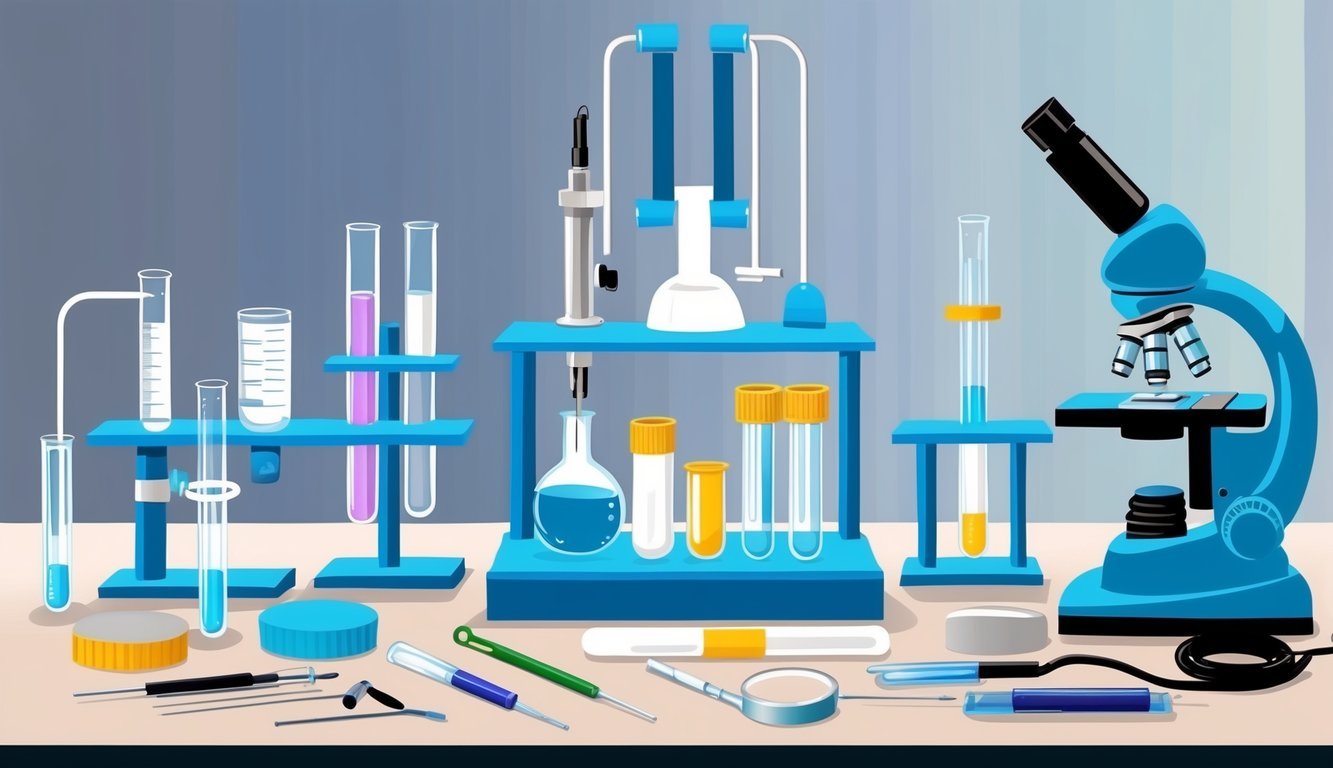
If you’re eager to jump into the world of lab medicine, give edX’s Introduction to Laboratory Medicine Course a shot.
This online course offers a sneak peek into what working in a medical lab is all about.
You’ll discover different lab tests and their significance for patients.
The cherry on top? You can take this course at your own pace.
No pressure—no deadlines looming over you!
You’ll dive into topics like blood tests, urine analysis, and interpreting results.
It’s perfect if you’re just curious about lab work or contemplating a career switch.
And don’t worry; it’s designed for beginners—no prior medical knowledge needed to get started.
When you wrap up, you’ll have a solid understanding of basic lab procedures and how they aid in diagnosing diseases.
It’s a great way to see if this field piques your interest!
6) Houston Community College’s MLT Associate Degree
If you’re in Houston and dreaming of becoming a medical lab tech, check out the Medical Laboratory Technician Associate’s degree at Houston Community College (HCC).
This two-year program requires 60 credit hours and covers all the basics you need to know as a lab tech.
HCC’s MLT program is highly regarded, accredited by the National Accrediting Agency for Clinical Laboratory Sciences (NAACLS), which means you’ll get a quality education.
After graduation, you’ll be all set to tackle national certification exams, helping you land a fantastic job in a medical lab.
Plus, the program includes hands-on training in real labs, giving you crucial experience even before you finish school.
Affordability is a big perk, too, with tuition rates that beat many other institutions.
This makes it a smart choice for those looking to save money while pursuing their degree.
Ready to dive in? Start by attending an online info session.
Then, you can apply and begin your journey to becoming a lab tech!
7) Medical Lab Technician Program at Austin Community College
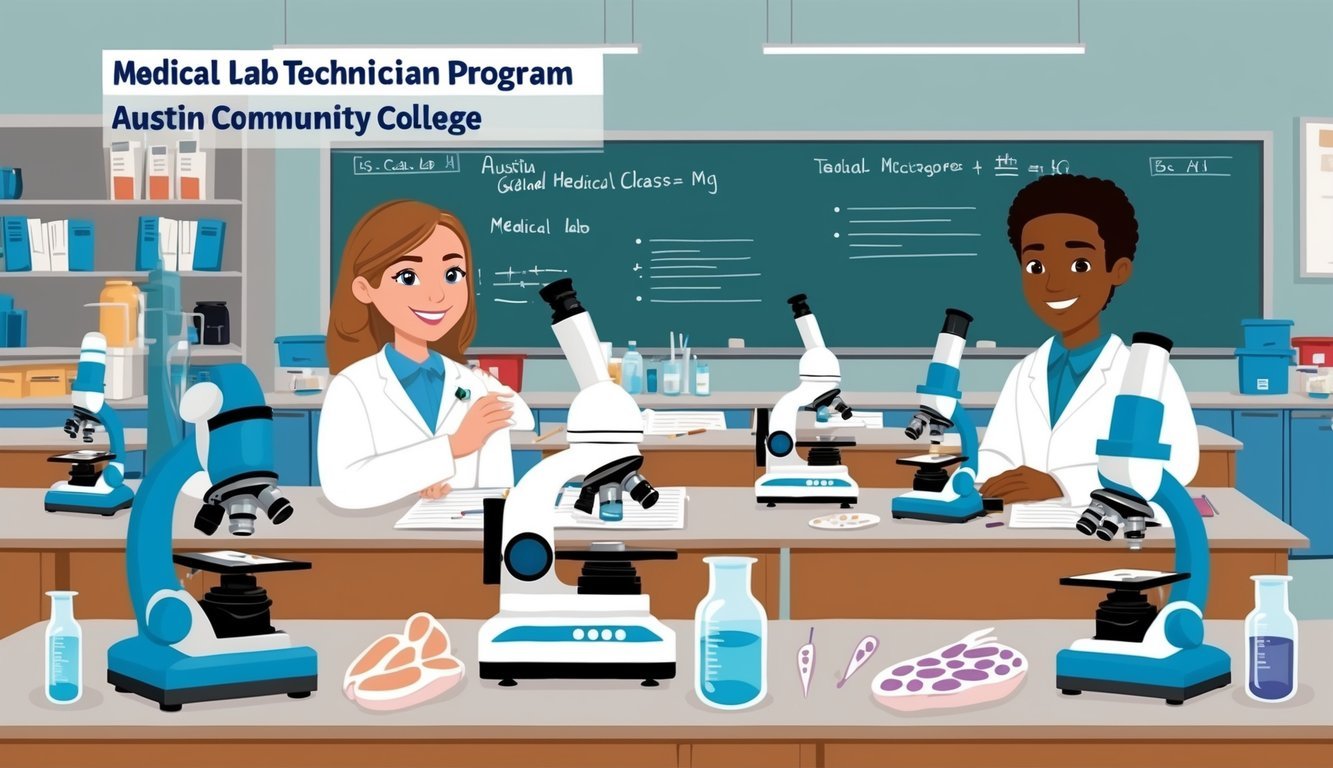
Thinking about pursuing a career as a medical lab tech? Austin Community College’s Medical Laboratory Technology Program can set you up nicely with an associate degree.
In this program, you’ll learn all about analyzing blood and other body fluids—it’s perfect if you love science and want to contribute to healthcare.
The program is competitive, but don’t worry; they offer prep courses to help you get ready.
And if you want to stand out, they even provide advanced training in molecular diagnostics—that’s some cutting-edge stuff!
Classes kick off each fall, and applications are open from September 1 to November 1, 2024.
Just a heads up: spots fill up fast, so don’t wait too long to apply!
Requirements to Become a Medical Laboratory Technician
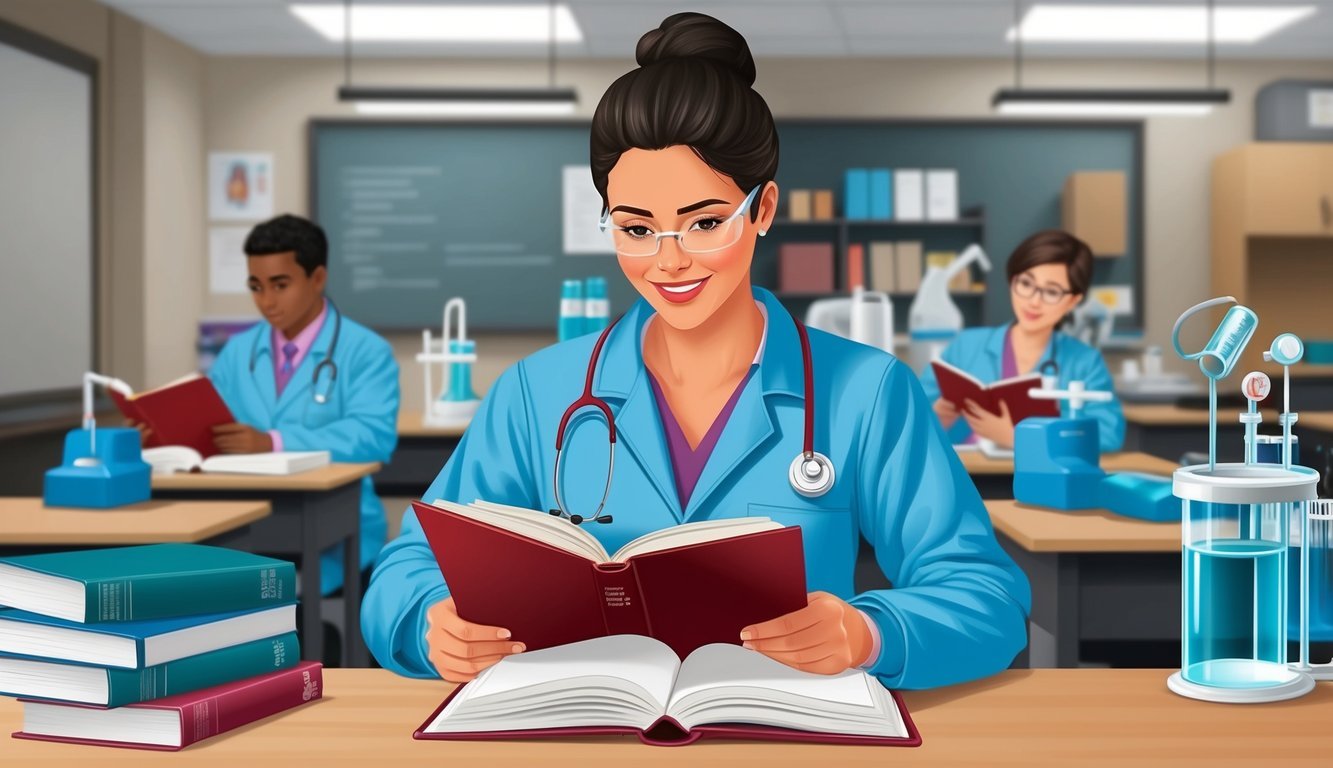
Thinking about becoming a medical lab technician? You’ll need to nail down specific educational and certification steps along the way.
Educational Background
Generally, aspiring medical lab techs kick off their careers with an associate’s degree in medical laboratory technology.
Some schools also offer shorter certificate programs.
Expect to study chemistry, biology, and math—those subjects are crucial!
You’ll gain hands-on experience with lab procedures and equipment.
Practicing in school labs and often completing an internship at a hospital or clinic will be big parts of your training.
Some folks start with just a high school diploma and receive on-the-job training.
However, most employers prefer candidates who’ve got formal education under their belts.
Certification and Licensing
Once you finish your education, getting certified is usually the next step.
The primary certification is the Medical Laboratory Technician (MLT) certification from the American Society for Clinical Pathology (ASCP).
To become certified, you’ll need to pass an exam that tests your knowledge of lab procedures and safety rules.
Keep in mind, some states require a license to work, so check your state’s regulations to see what you’ll need.
Staying updated on skills is essential—you’ll have to take continuing education classes periodically to keep your certification current.
Roles and Responsibilities of a Medical Laboratory Technician

As a medical lab tech, you’ll have a vital role in healthcare, handling patient samples and running tests that help doctors make diagnoses.
Let’s look at what you’ll do on a day-to-day basis and where you might work.
Daily Tasks
Your daily routine as a medical lab tech will include collecting and processing samples like blood, urine, and tissue, using specialized tools to run tests.
Your job will involve:
- Setting up and cleaning lab equipment
- Following strict safety protocols
- Logging test results in computer systems
- Spotting abnormal results and communicating with doctors
You’ll also need to be good at talking to patients when you collect samples.
Keeping the lab organized and tidy is essential!
Work Environments
Medical lab techs can find work in various settings.
Common places include hospitals, clinics, and diagnostic labs.
Some techs even work in research labs or blood banks.
Your workspace will be packed with high-tech tools.
You might work with microscopes, centrifuges, or automated analyzers.
Most labs operate around the clock, so expect to work day, night, or weekend shifts.
You’ll often be part of a team alongside doctors, nurses, and fellow lab staff.
It can get pretty busy, but it’s incredibly satisfying to know you’re helping patients get the care they need!
Frequently Asked Questions

If you’re considering a career as a medical lab tech, you probably have some questions about the available courses and programs.
Let’s tackle a few common queries to help you find the right path.
What are the most highly recommended courses for becoming a medical laboratory technician?
One standout option is Coursera’s Medical Laboratory Technician Professional Certificate.
It covers the essential skills and knowledge you’ll need, including lab procedures and medical terminology.
Many students also find this certificate helpful when looking for the best online phlebotomy courses; it’s a solid foundation for building skills in blood collection techniques.
With this industry-recognized training, you can inch your way up in the healthcare field.
The Mayo Clinic’s Medical Laboratory Science Program is another top choice.
It offers hands-on training at a leading healthcare institution!
Where can I find the best medical laboratory technician programs near me?
Your best bet is to check out local community colleges and universities.
Many have MLT programs that kick off in January and run for around 24 months.
You can also look online for programs in your area.
Some schools admit 20-24 students each fall based on a point system.
Can you list some top online medical laboratory technician certification programs?
Absolutely! The University of Cincinnati’s Online MLT to MLS Program is fantastic for those already working as MLTs.
ASCP’s Medical Laboratory Technician Certification is another well-respected credential in the field.
Which institutions offer the leading medical laboratory technician courses in the United States?
Mayo Clinic and the University of Cincinnati top the list.
They’ve built stellar reputations in healthcare education.
Don’t forget about Calhoun Community College, which offers a solid program too.
They welcome a new class of 24 students each fall.
How do I choose the best medical lab technician course for my career advancement?
Look for accredited programs that emphasize hands-on lab experience.
Check the school’s job placement rate and industry connections, too.
Consider your schedule—some programs offer online options for added flexibility.
What qualifications should I look for to find a top-tier medical laboratory technician certification?
Seek certifications recognized by employers, like the ASCP MLT certification—it’s the gold standard in the field.
Find programs that prepare you for certification exams. edX’s Introduction to Laboratory Medicine Course could be a great starting point.

